#instagram filters
Explore tagged Tumblr posts
Text




#this filter.#2014 grunge#aesthetic#core#soft grunge#2014 nostalgia#grunge#tumblr grunge#2014 aesthetic#2014 revival#moodboard#2010s tumblr#2010s nostalgia#instagram filters#ripped jeans#plaid#black
151 notes
·
View notes
Text


Just placed 1st place at my wrestling tournament btw this was my first medal. 🥇 ♥️
#thisissosurreal
#lesbian#black lesbian#masculine lesbian#black girls of tumblr#qwoc#black tumblr#androgynous#sapphic#lgbtqia#wrestler#wrestling#female wrestler#femme bait#i love femmes#loser lesbian#afro#instagram filters#2014 aesthetic#2014 nostalgia#sports#i love girls#wlw#black queerness#black wlw#lesbian community#black lesbians#female sports#buff lesbian#queer#mipomme
30 notes
·
View notes
Text




God I love this filter 😍
#les mis fanart#enjoltaire#fanart#illustration#doodle#les mierables#enjolras#grantaire#les miz#modern au#instagram filters#netflix
103 notes
·
View notes
Text




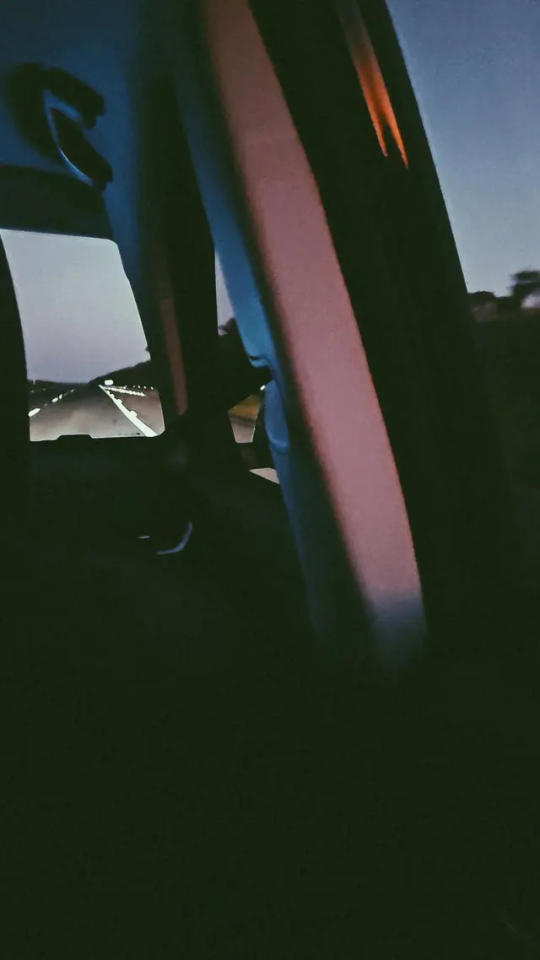


🕰🕯🎞 | road trip
#2014 tumblr#alt#soft grunge#tumblr#car#trip#road trip#woods#sunrise#nature#2014 grunge#alt aesthetic#all stars#converse#2014#arctic monkeys#aesthetic#instagram filters#2010s nostalgia#grunge#2014 revival#Spotify#featured
12 notes
·
View notes
Text
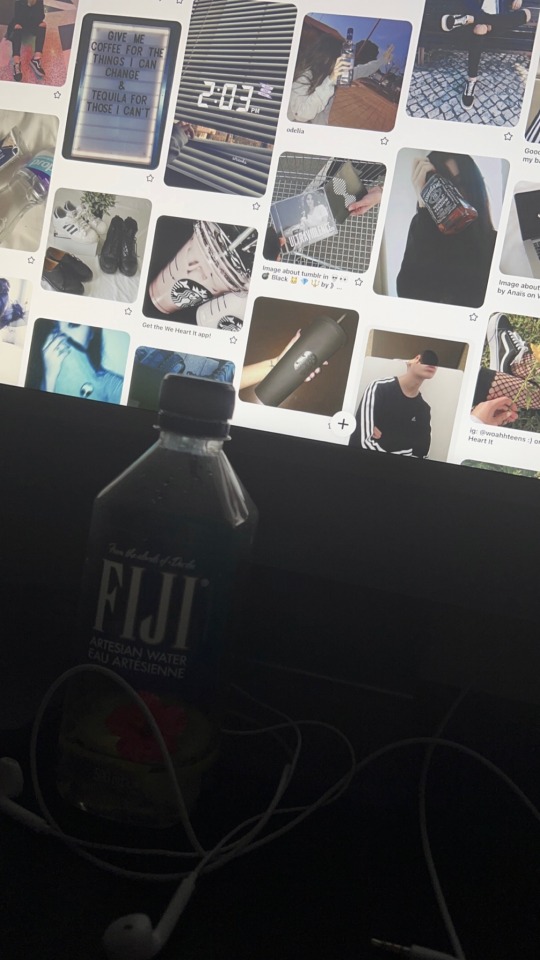
//just enough madness to make yourself interesting//
#2014 nostalgia#i miss 2014#tumblr boys#tumblr2014#tumblrcore#2014 grunge#grunge revival#pale blog#pale grunge#pale tumblr#summer#summer 2016#2к17#instagram filters#instagram 2016#pale boy#2k14 revival#2k14 aesthetic#2014 vibes#2014 style#fiji water#pinterest#pinterest board
131 notes
·
View notes
Text
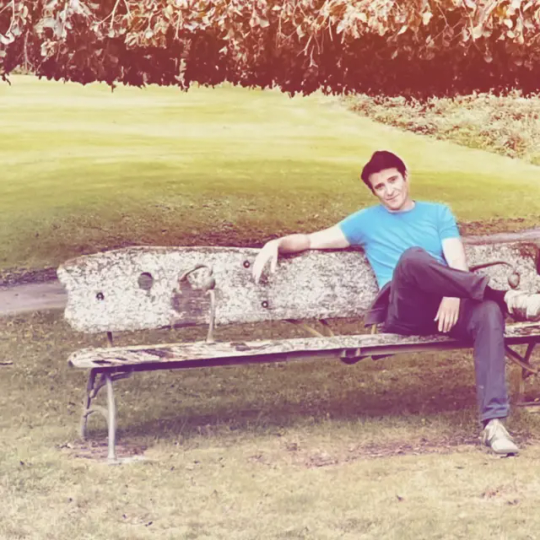
Shared by Lefty on Instagram in September 2023 ❤
6 notes
·
View notes
Text
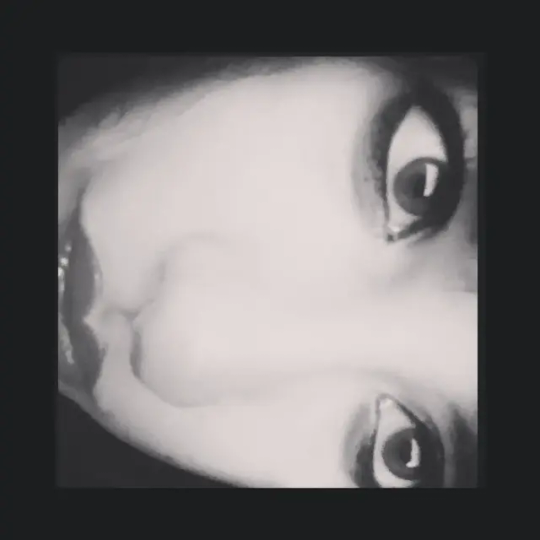
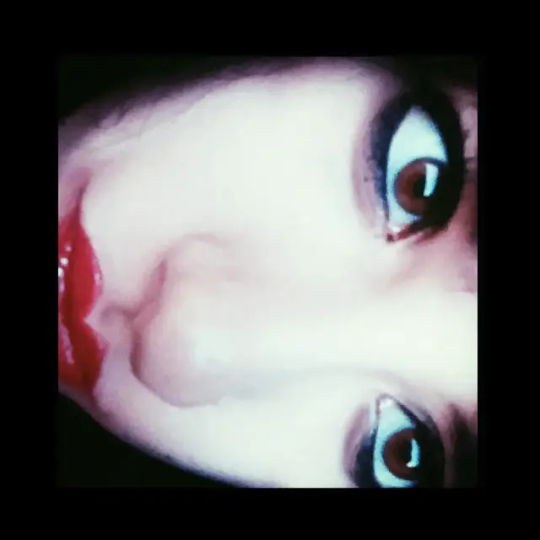

willow, lo-fi & inkwell
2 notes
·
View notes
Text





Some filter images of funtime freggy-
#original art#my art#online art#fnaf#fnaf bonbon#fnaf funtime freddy#fnaf sister location#filters#adobe illustrator#adobe#instagram filters
5 notes
·
View notes
Text



Yooo🐆.
#lanadelgey
#lesbian#black lesbian#masculine lesbian#black girls of tumblr#black tumblr#qwoc#androgynous#lgbtqia#sapphic#androgyny#blackfemmebait#i love femmes#femme bait#loser lesbian#black wlw#wlw#swagstyle#swag#2015 nostalgia#2015 tumblr#2014 aesthetic#aesthetic#black girl aesthetic#instagram filters#fashion#cheeta print#style#asap rocky#lana del rey#mipomme
24 notes
·
View notes
Text
6th Stop: The Online Body and The Authentic Self
Many of us have our go-to filters, which serve as digital mirrors reflecting our online lives. As someone who habitually embellishes my photos with filters, I contend that these tools, akin to traditional photo editing, vintage cameras, and carefully staged compositions, offer us the means to craft a visually pleasing narrative of our reality, which also holds authenticity in them.
Defamiliarizing Life Online: La Vie En Rose
The use of photo filters not only enhances the visual appeal of our images but also, as Sontag refers to the portrayal of war imagery, can desensitize us to the mundane aspects of our daily lives (1973, 20). Yet, concurrently, filters present us with images that deviate from the familiar scenes we're accustomed to witnessing.

One reason why filters captivate us is their ability to give images a sense of strangeness, defamiliarizing our everyday existence. Filters steal a little bit of our images; they corporate our vision with what the lens of a machine portrays.
Let me see my life through someone else’s eyes—or, in this case, the unfocused and impartial eye of a machine - Bianca Bosker (2014)
Although Instagram-style filters may initially render our selfies and everyday snapshots unrecognizable, their widespread usage eventually diminishes the effect of defamiliarization, transforming it into a commonplace occurrence. Nevertheless, our everyday photos serve as a means of heightening our personal experiences and giving them special meanings.
In essence, these filtered photos afford ordinary individuals the opportunity to engage in artistic expression—a realm once reserved for professionals due to the intricacies of photography and editing tools such as DSLR cameras and Photoshop. And each photo serves as a narrative that we consciously choose to share.
Platformatization: Finding Authenticity in Filters
Behavior of any kind, even that wholly in accord with societal mores, is authentic if it results from personal understanding and approval of its drives and origins rather than merely from conformity with the received wisdom of society. - Erich Fromm (2011)
Behavior, whether conforming to societal norms or not, is considered authentic by Erich Fromm (2011) if it stems from an individual's personal understanding and endorsement of its underlying motivations and origins, rather than mere conformity to prevailing societal expectations. Fromm views authenticity as a positive result of informed and enlightened motivation, rather than a negative consequence of rejecting societal pressures.
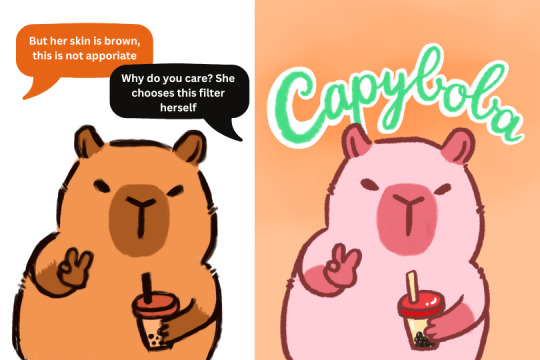
For instance, when selecting a filter for a photo, individuals make subjective choices that reflect their authenticity (Kumar & Madhushree Nanda Agarwal 2023). Consider a woman of color opting for a filter adhering to Western beauty standards. Her choice may signify a desire for societal acceptance, despite the inherent social injustices minorities face. In this context, her selection of a filter becomes a statement about her own experiences and struggles.
Platformization has transformed filters into customizable tools, allowing greater freedom to shape representations that reflect the diversity of our world. Platforms like Instagram, TikTok, and Facebook empower users, predominantly individuals, to design their own filters tailored to their unique needs and authenticity. Today, filter development is just as, if not more, likely to be conducted by a camgirl as it is by hundreds of full-time employees in a campus-sized studio. Skill-based barriers to entry have been eroded by the proliferation of low-cost and easy-to-use software development platforms known as AR toolkits .
These toolkits prioritize the creator's vision over technical expertise, resulting in a diverse range of filters that challenge conventional beauty standards. These filters may explore themes of disempowerment rather than conquest or feature mechanics that promote introspection over agency, thereby expanding the narrative possibilities and contributing to a more inclusive representation of reality.
Indeed, the filtered world we create online may diverge from its natural state, but it remains authentic in its own right. Through the lens of a digital camera, we craft a human-made vision of reality that reflects our perceptions, experiences, and desires. While this digital representation may not mirror the raw world, it nonetheless captures aspects of our inner selves and external surroundings, rendering it authentic in its portrayal of our lived experiences. Our online reality, shaped by filters and digital tools, serves as a unique and valid expression of our individual perspectives and narratives.
Reference
Bosker, B 2014, Hi, My Name Is Bianca And I’ve Already Taken Your Picture, HuffPost, viewed 31 March 2024, https://www.huffpost.com/entry/narrative-clip_n_4760580.
Fromm, E 2011, Escape from freedom, Ishi Press, New York, Tokyo.
Kumar, H & Madhushree Nanda Agarwal 2023, ‘Filtering the reality: Exploring the dark and bright sides of augmented reality–based filters on social media’, Australian Journal of Management, SAGE Publishing.
Rettberg, JW 2014, ‘Filtered Reality’, in Seeing Ourselves Through Technology: How We Use Selfies, Blogs and Wearable Devices to See and Shape Ourselves, Palgrave Macmillan, London, pp. 20–32, viewed 31 March 2024, https://doi.org/10.1057/9781137476661_2.
Sontag, S 1978, On Photography, Allen Lane, London.
2 notes
·
View notes
Text

//im not shy, i just dont like you//
#2014 nostalgia#i miss 2014#tumblr boys#tumblr2014#tumblrcore#2014 grunge#grunge revival#pale blog#pale grunge#pale tumblr#summer#summer 2016#pale boy#2к17#grunge#instagram filters#instagram 2016#2k14 revival#2k14 aesthetic#2014 vibes#2014 style#holographic#holo
108 notes
·
View notes
Text
#maleficent#sleeping beauty#disney#horns#instagram filter#fun with filters#instagram filters#tiktok#tiktok filter#my videos#my video
7 notes
·
View notes
Text
CryptoDan Spark Ar Trendsetter
CryptoDan🐝🍀🐝 Humble and intelligible CEO of 6thStreetRecords, YouTube creator, musical artist and founder of the“CryptoDan Collection” Top 4 Spark Ar Filters With 10k+ Impressions By CryptoDan Cleaner🐝🍀🐝 By CryptoDan Use Effect Cleaner Cleaner is the best cleaner filter use mostly by International people this filter is now the best filter on the global need your camera cleaner use my effect…

View On WordPress
#crypto clear filter by cryptodan#CryptoDan#facebook filters#instagram filters#soft cleaner filter by cryptodan
0 notes
Text

#instalike#influencer#instagram#instagram followers#youtube#youtube channel#youtumblr#youtuber#instagram feed#instagram filters
0 notes
Text








#SwagisDue💯
#lesbian#black lesbian#masculine lesbian#black girls of tumblr#qwoc#black tumblr#lgbtqia#swagg#swagged out#swag#androgynous#black wlw#wlw#2014 nostalgia#2015 aesthetic#aesthetic#black girl aesthetic#afro hair#leopard print#2012 nostalgia#2014 aesthetic#fashion clothing#fashion#femme bait#i love femmes#black queerness#black lgbt#rihanna#instagram filters#mipomme
12 notes
·
View notes
Text
Week 9 | Digital Citizenship and Software Literacy: Instagram Filters

HELLOOOOOO! how many of you have used filters on Instagram before? you know those thing that adds to your face, like make up, or butterflies? I don't know there are so many of them, my favorite filter right now is the one that turns you into Shrek, yes, Shrek. Anyway, let me know which Instagram filter you use the most and which ones are your favorite!!

SO, a quick recap of what digital citizenship is since I've covered it in a past post. Digital citizenship encompasses the responsible and effective use of technology and the internet. Integral to this concept is software literacy, which includes the ability to use digital tools like Instagram filters proficiently. Instagram filters are more than just a means to enhance photos; they are a gateway to understanding broader issues of digital etiquette, creative expression, technical skills, and ethical considerations. Using Instagram filters requires a keen sense of software literacy. For instance, it's important to use filters to enhance photos without misleading viewers. Influencers like Essena O’Neill have highlighted the ethical issues around heavily edited images, showing how such practices can contribute to unrealistic beauty standards and affect self-esteem (O'Neill, 2015). Responsible use involves being transparent about filters to maintain authenticity and trust with followers.
So what are instagram filters? For people living under rocks, filters allow users to creatively express themselves. For example, augmented reality (AR) filters can transform ordinary photos into engaging and artistic content. Learning to use these filters effectively involves understanding the Instagram interface and adjusting technical settings like brightness and saturation. This not only enhances creative output but also improves technical literacy, enabling users to better understand and utilize digital tools. A critical aspect of using Instagram filters is the ability to evaluate their impact. Research indicates that constant exposure to filtered images can distort users' perceptions of reality and self-worth (Kleemans et al., 2018). Ethical use of filters means being mindful of these impacts and promoting positive body image. For instance, campaigns like Dove’s “Real Beauty” advocate for minimal use of filters to celebrate natural beauty, setting a responsible example for digital citizens.
In conclusion, Instagram filters offer a rich context for exploring digital citizenship and software literacy. By understanding and applying these tools responsibly, users can enhance their creative expression, technical skills, and ethical awareness, contributing positively to the digital community.
References
Kleemans, M., Daalmans, S., Carbaat, I., & Anschütz, D. (2018). Picture Perfect: The Direct Effect of Manipulated Instagram Photos on Body Image in Adolescent Girls. Media Psychology, 21(1), 93-110.
O'Neill, E. (2015). Why I am really quitting social media. Retrieved from Essena O’Neill's website.
Dove. (n.d.). Dove Real Beauty Campaign. Retrieved from Dove.
0 notes